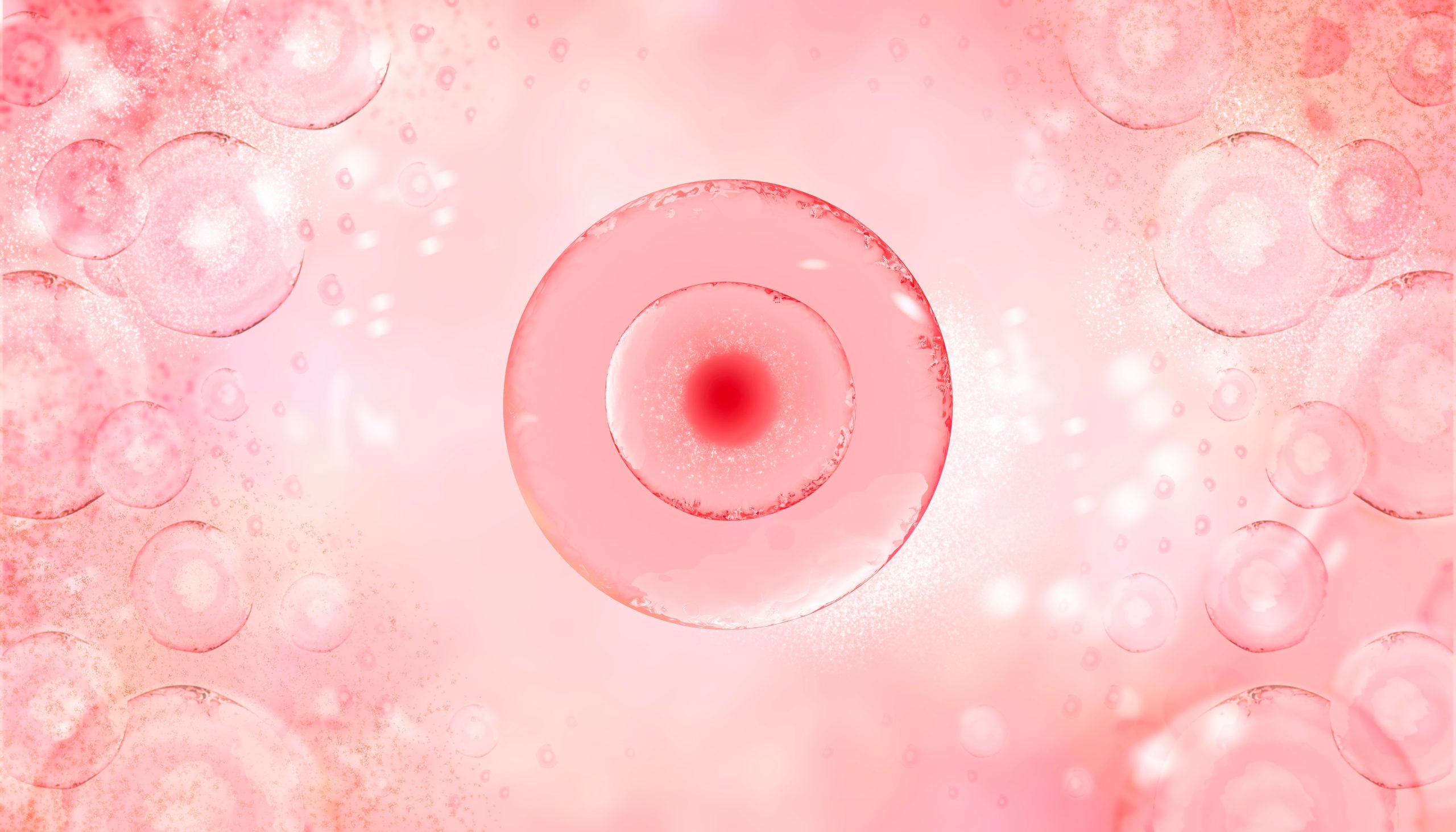In assisted reproduction, each stage of the treatment decisively influences the chances of achieving a pregnancy. One of the most important phases is embryonic development up to the blastocyst stage, a key viability indicator for implantation. But what percentage of fertilized eggs actually reach this point?
This article provides precise data, explains the factors affecting embryonic development, and shows how techniques such as egg vitrification, egg donation, and care at a fertility clinic like Ingenes can make a difference. We also explore the main causes of female infertility that can influence this process. Avoid self-medication; before using any medication, always consult a specialist in Assisted Reproduction.
What is a blastocyst and why is it important?
Around the fifth or sixth day after fertilization, the embryo forms a fluid-filled cavity and begins to differentiate into the inner cell mass (future baby) and the trophectoderm (future placenta). Only embryos that reach the blastocyst stage have high chances of implanting and developing.
What is the survival rate to blastocyst?
On average, between 40% and 60% of fertilized eggs reach the blastocyst stage. This rate varies according to:
- Woman’s age
- Quality of eggs and sperm
- Laboratory techniques and culture media
- Underlying causes of female infertility
- Use of fresh vs. frozen eggs
- Egg donation vs. autologous cycles
In patients under 35 using their own eggs, rates often exceed 60%. In women over 38 or with diminished ovarian reserve, they can fall below 40%.
Factors most affecting embryonic development to day 5
Oocyte quality (age and AMH levels)
With age, egg quantity and quality decline. Measuring AMH (anti-Müllerian hormone) and antral follicle count by ultrasound helps estimate ovarian reserve and predict blastocyst rates.
Sperm quality and male factor
Up to 50% of embryonic arrests are related to male factors. A semen analysis, morphology and motility assessment at the clinic ensures proper diagnosis and treatment for both partners.
Laboratory environment and culture media
State-of-the-art incubators with low O₂ concentration, enriched media, time-lapse monitoring, and ICSI/PICSI increase embryonic viability.
Do vitrification or egg donation improve blastocyst rates?
Egg vitrification preserves quality by halting cellular aging. When done correctly, it offers blastocyst rates similar to fresh cycles.
Egg donation uses oocytes from young, healthy donors. It often achieves rates above 70%, ideal for women with premature ovarian failure or low reserve.
When to transfer on day 3 vs. day 5?
Day-3 transfer (cleavage stage) can be useful if:
- You have few embryos
- The uterus is ready for early implantation
- No genetic testing is required
Day-5 blastocyst transfer usually offers better implantation rates, provided there are at least two good-quality blastocysts.
How to increase your chances of reaching blastocyst
Choose a specialized clinic
Opt for a center with proven results and advanced technology. At Ingenes, we design personalized protocols, adjust hormone doses in IU, and optimize culture conditions to maximize your success.
Address the causes of infertility
PCOS, endometriosis, uterine malformations, or hormonal imbalances can hinder embryonic development. Comprehensive diagnosis and personalized treatment improve oocyte quality and endometrial receptivity.
Use complementary treatments
From intra-ovarian PRP to mitochondrial enrichment, high-complexity techniques can improve low-response cycles and encourage blastocyst formation.
What to expect from your treatment at Ingenes?
With over 20 years of experience and success rates above the national average, Ingenes offers:
- Personalized fertility evaluations
- AMH tests and antral follicle counts
- Advanced egg vitrification technology
- Rigorous egg donation programs
- IVF with continuous embryo monitoring
- Diagnosis and management of female infertility causes
In our laboratory, we maximize the percentage of fertilized eggs that reach the blastocyst stage with high viability.
Frequently Asked Questions
1. What percentage of blastocysts implant successfully?
Blastocyst implantation rates range from 50% to 65%, depending on endometrial receptivity, embryo quality, and transfer technique. A receptive endometrium, assessed by ultrasound and molecular markers, increases the chances.
Transferring 1–2 blastocysts reduces the risk of multiple pregnancies without sacrificing success. Tools like ERA (Endometrial Receptivity Array) help personalize the optimal transfer timing.
2. Do hormonal protocols improve blastocyst formation in low-response patients?
Yes. Stimulation protocols with higher gonadotropin doses (IU) and adjuvants like growth hormone or androgens can increase follicular recruitment. Monitoring estradiol (pg/mL) and progesterone (ng/mL) guides dose adjustments.
DHEA supplements and antioxidants can optimize oocyte competence and improve blastocyst rates in patients with low reserve.
3. What is the ideal number of eggs to retrieve for good blastocyst yield?
Retrieving 8–15 mature oocytes (MII) typically produces 4–8 blastocysts in women under 35. More than 15 eggs increases OHSS risk without proportional gains. In women over 38, even 5–7 well-selected oocytes can yield 2–3 blastocysts.
Reserve markers (AMH >1.2 ng/mL, AFC ≥8) help set realistic yield expectations.
4. How does PGT-A impact blastocyst selection?
PGT-A assesses chromosomal normality in blastocysts to select euploid embryos, improving implantation and live birth rates while reducing miscarriage. It’s performed on day 5/6 via trophectoderm biopsy.
Although it involves additional vitrification and extra cost, its benefits usually outweigh drawbacks in patients with recurrent miscarriage or advanced maternal age.
References
- American Society for Reproductive Medicine. (2020). The role of blastocyst culture in IVF. Fertility and Sterility, 114(6), 1145–1152. https://doi.org/10.1016/j.fertnstert.2020.08.003
- Stanhiser, J., & Clark, M. R. (2019). Impact of maternal age on oocyte and embryo quality. MedlinePlus. https://medlineplus.gov/agingandfertility
- Gardner, D. K., & Lane, M. (2018). Culture of human blastocysts. Human Reproduction Update, 24(1), 20–33. https://doi.org/10.1093/humupd/dmy032
- European Society of Human Reproduction and Embryology. (2021). Laboratory practices for embryo culture. Human Reproduction Open, 2021(4), hoab020. https://doi.org/10.1093/hropen/hoab020
Remember that every case is unique: keep hope alive and take the next step by consulting a specialist in assisted fertilization to guide you on your path to parenthood.

